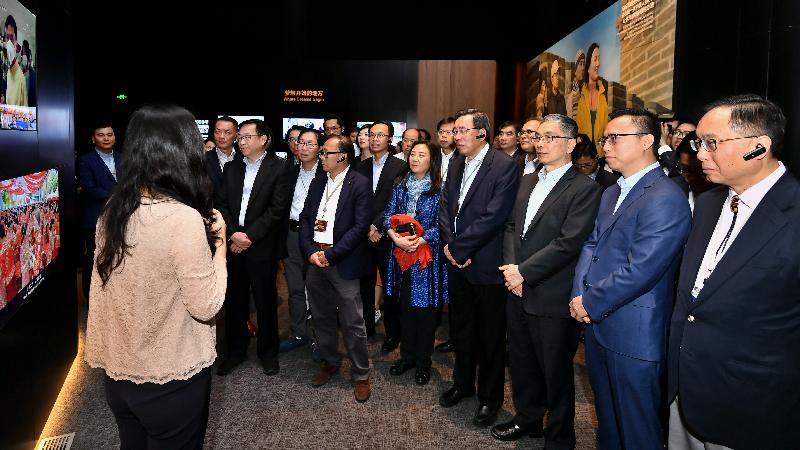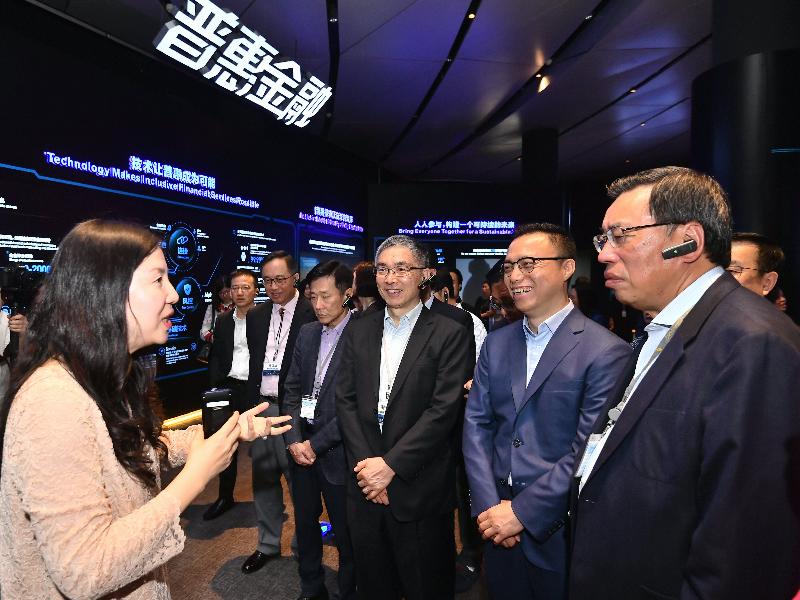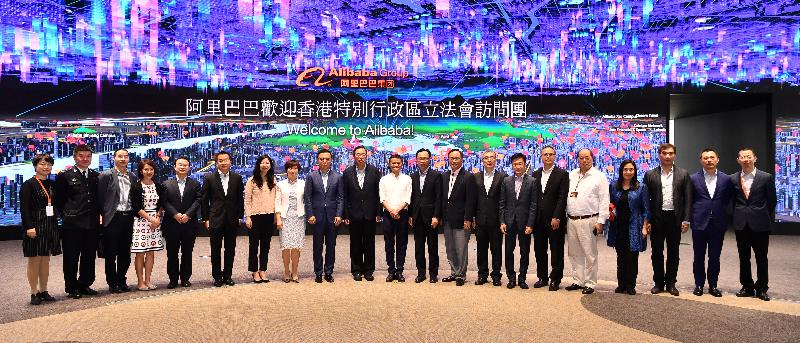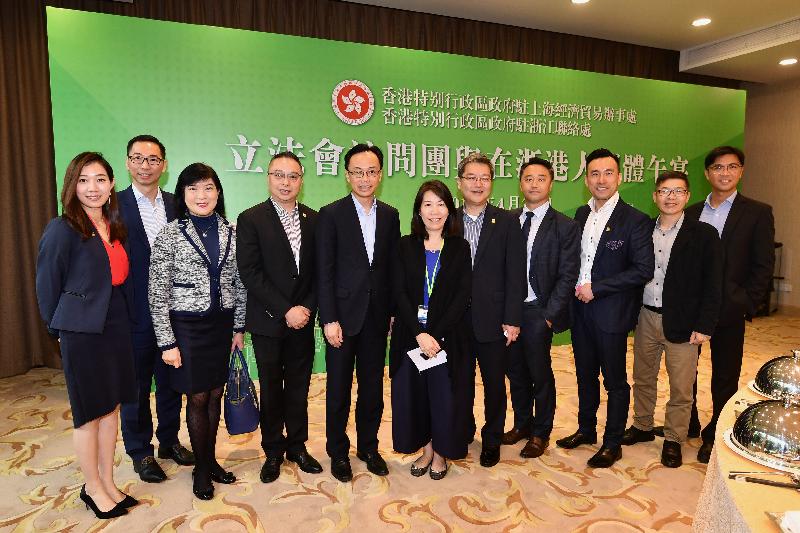Three Directors of Bureaux conclude LegCo joint-panel duty visit to major cities in Yangtze River Delta Region (with photos)
The Secretary for Constitutional and Mainland Affairs, Mr Patrick Nip; the Secretary for Innovation and Technology, Mr Nicholas W Yang; and the Secretary for Financial Services and the Treasury, Mr James Lau, continued the visit with Legislative Council (LegCo) members in Hangzhou today (April 24), the last day of LegCo’s joint-panel duty visit to major cities in the Yangtze River Delta Region.
The three Directors of Bureaux and LegCo members visited the headquarters of the Alibaba Group in the morning and learned about its development of e-commerce, intelligent logistics and financial inclusion systems. They were also briefed on the traffic management system which combines the technologies of artificial intelligence, the Internet of Things and big data. The delegation also had an exchange session with the Executive Chairman of the Alibaba Group, Mr Jack Ma, as well as senior staff members of the company on the use of big data in improving city management.
In the afternoon, the delegation met with Hong Kong people working and living in Zhejiang to understand more about their life in the province. They also toured the Hangzhou Hi-tech Industry Development Zone and visited a company specialising in ocean energy application technologies to see the latest developments in nurturing high-tech industries in the development zone, which is a national-level incubation hub for small to medium-sized technology firms.
The delegation then proceeded to the last stop of the trip and visited WeDoctor. The company has set up an online platform linking the information systems of hospitals in different provinces of the country and provides online medical consultation services to clients. It also makes use of artificial intelligence to conduct research in the field of Chinese medicine.
Concluding the trip, Mr Nip said that the four-day duty visit covered major development areas in Shanghai and Hangzhou, including innovation and technology, culture and conservation, education, financial services and tourism. The delegation also met with provincial and municipal officials and was briefed on the integrated development of the Yangtze River Delta Region. The visit enhanced LegCo members’ knowledge and understanding of the developments and opportunities in the Yangtze River Delta Region.
Mr Nip said that Hong Kong is an important gateway for the country’s opening up and a core engine for the development of the Guangdong-Hong Kong-Macao Greater Bay Area. As the country’s economy moves towards the new era of high-quality development, Hong Kong and the Yangtze River Delta Region can seize the development opportunities by enhancing co-operation from the perspective of regional development and leverage their respective advantages to serve the country’s needs and contribute to the country’s development.






